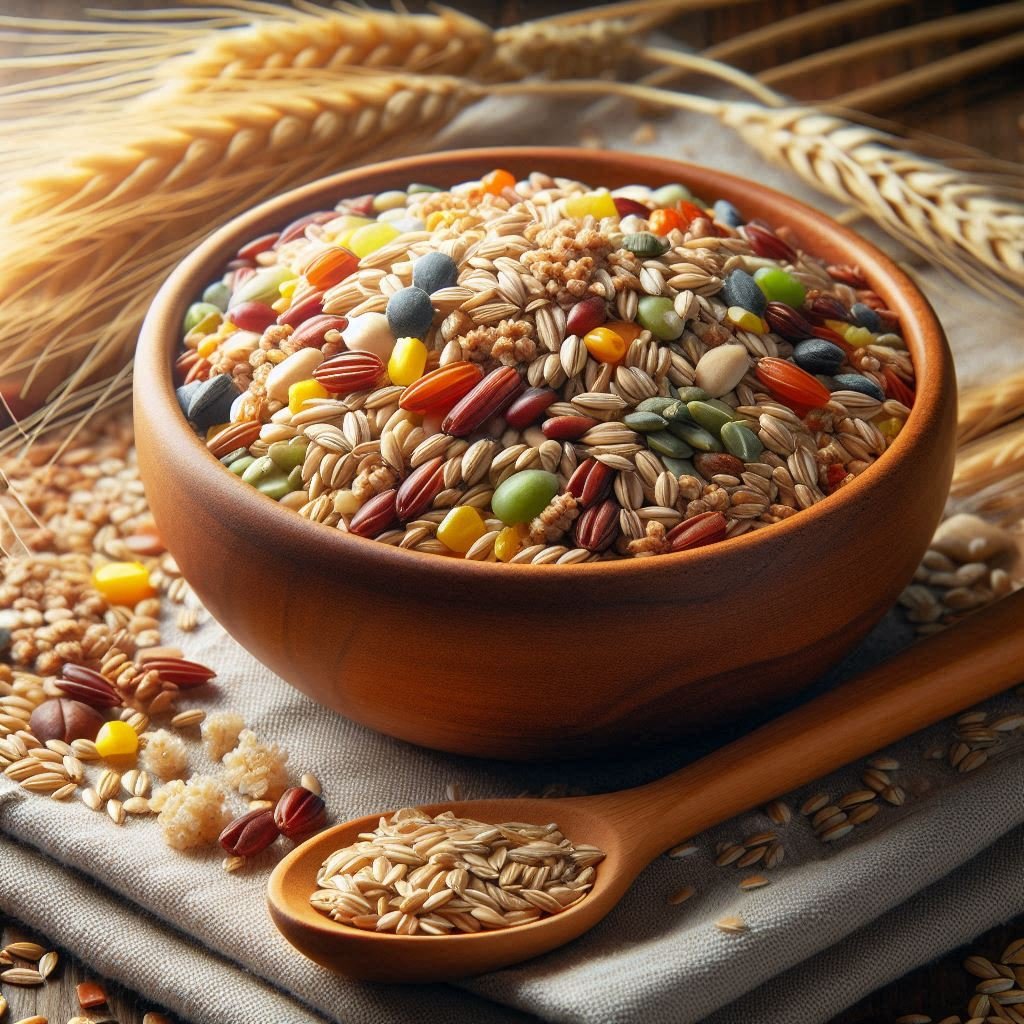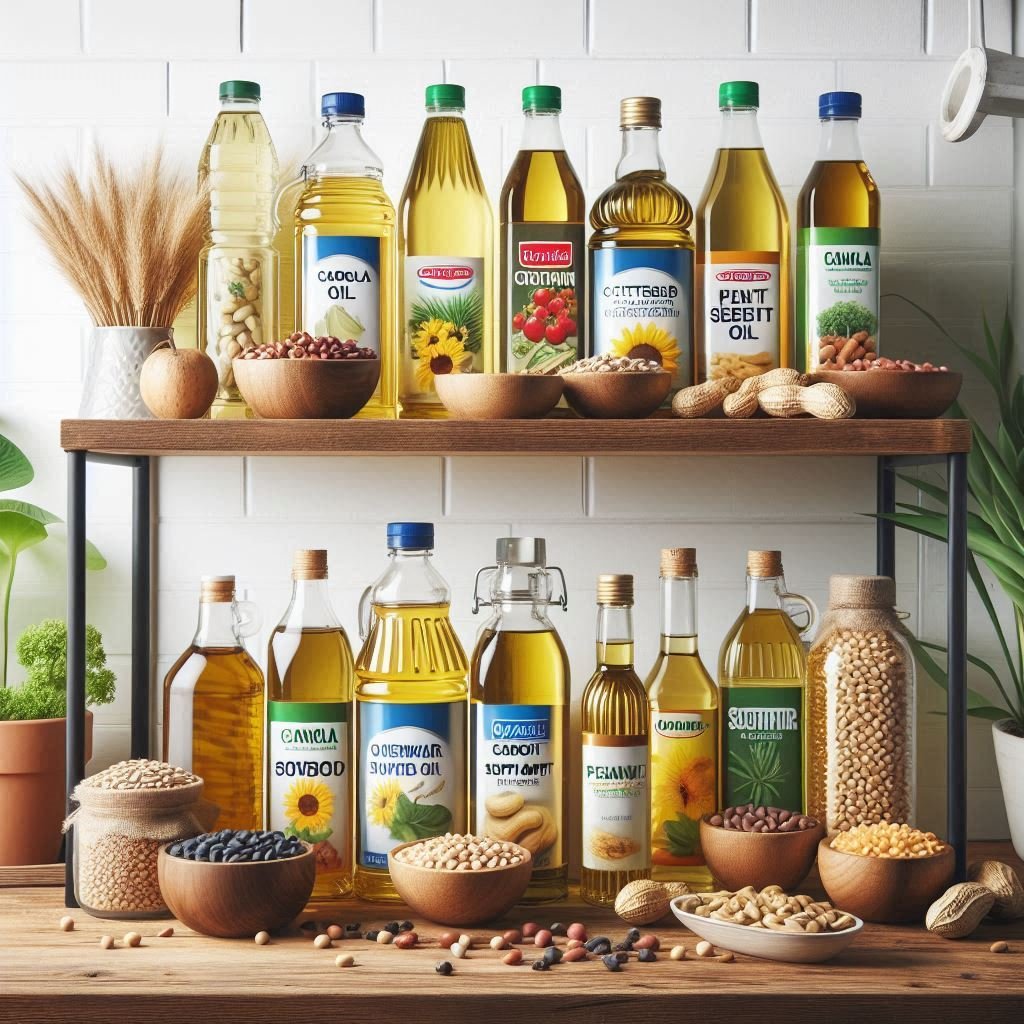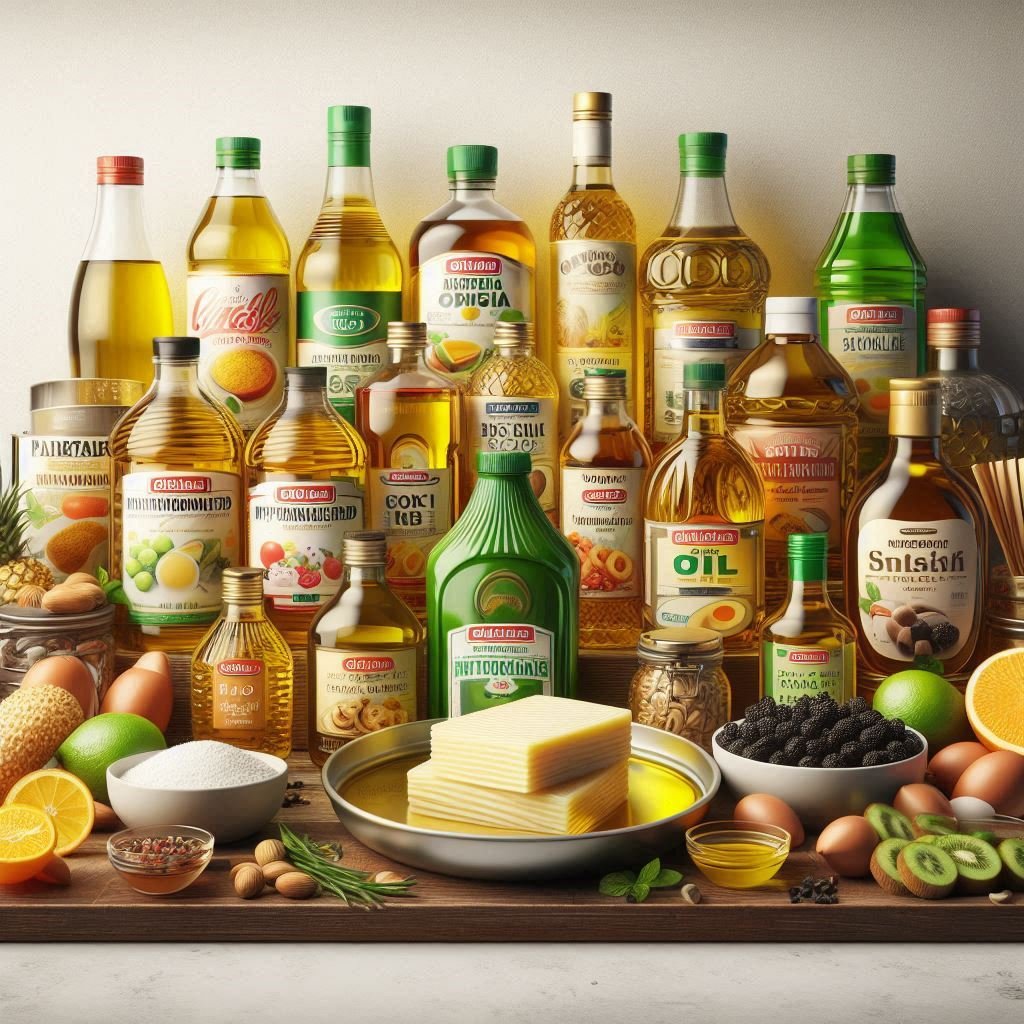Chronic inflammation is a silent killer, linked to many debilitating diseases including arthritis, diabetes, heart disease, and even cancer. While there are many factors that contribute to inflammation, the food we eat plays a significant role in either fueling or fighting it.
Unfortunately, many common foods in our modern diet can trigger or exacerbate inflammation, making it harder to manage symptoms and achieve optimal health.
The good news is that by identifying and avoiding these inflammatory foods, you can take a significant step towards reducing inflammation and promoting overall well-being. Here are the top 15 inflammatory foods you must avoid to start feeling better, today.
1. Refined Sugar

Refined sugar is one of the most inflammatory foods in the modern diet. Consuming high amounts of sugar has been linked to an increased risk of chronic diseases, including obesity, type 2 diabetes, and heart disease. Refined sugar is found in many processed foods, including baked goods, sweetened beverages, and candy.
When you consume refined sugar, it causes a rapid spike in blood sugar levels, which triggers an inflammatory response in the body. This can lead to the production of advanced glycation end (AGE) products, which are known to contribute to inflammation and oxidative stress.
To avoid refined sugar, focus on consuming natural sources of sugar, such as fruits and vegetables. Read food labels carefully and avoid products with added sugars, high-fructose corn syrup, and artificial sweeteners.
2. Processed Meats

Processed meats, such as hot dogs, sausages, and bacon, are high in advanced glycation end (AGE) products, which are known to contribute to inflammation and oxidative stress. These meats are also high in sodium and preservatives, which can further exacerbate inflammation.
Consuming processed meats has been linked to an increased risk of chronic diseases, including heart disease, type 2 diabetes, and certain types of cancer. The World Health Organization has classified processed meat as a carcinogen, which means that it is considered a cancer-causing substance.
To avoid processed meats, focus on consuming whole, unprocessed foods, such as grass-fed beef, wild-caught fish, and organic poultry. Choose nitrate-free and low-sodium options, and limit your consumption of processed meats to special occasions.
3. Dairy Products with A1 Casein

Dairy products, such as milk, cheese, and yogurt, contain a protein called casein. There are two types of casein: A1 and A2. A1 casein is found in dairy products from cows of Western breeds, such as Holsteins, while A2 casein is found in dairy products from cows of Asian breeds, such as Guernseys.
A1 casein has been linked to an increased risk of inflammation, autoimmune disease, and digestive problems. This is because A1 casein is more likely to be broken down into a peptide called casomorphin, which can stimulate the immune system and trigger an inflammatory response.
To avoid dairy products with A1 casein, choose products from cows of Asian breeds, such as Guernseys or Jerseys. You can also consider switching to non-dairy alternatives, such as almond milk or coconut yogurt.
4. Gluten-Containing Grains

Gluten is a protein found in certain grains, including wheat, barley, and rye. While gluten is not inherently inflammatory, it can trigger an immune response in people with celiac disease or non-celiac gluten sensitivity.
Consuming gluten can lead to inflammation in the gut, which can contribute to a range of symptoms, including bloating, abdominal pain, and diarrhea. In people with celiac disease, gluten can also trigger an autoimmune response, which can lead to damage in the small intestine.
To avoid gluten-containing grains, focus on consuming gluten-free grains, such as rice, quinoa, and corn. Choose gluten-free products, and be careful when eating out to avoid cross-contamination with gluten.
5. Fried Foods

Fried foods, such as french fries and fried chicken, are high in advanced glycation end (AGE) products, which are known to contribute to inflammation and oxidative stress. Fried foods are also high in calories, fat, and sodium, which can further exacerbate inflammation.
Consuming fried foods regularly has been linked to an increased risk of chronic diseases, including heart disease, type 2 diabetes, and certain types of cancer. Fried foods can also disrupt the gut microbiome, leading to changes in the way the body processes glucose and increasing the risk of metabolic disease.
To avoid fried foods, focus on consuming baked, grilled, or steamed foods instead. Choose healthier oils, such as olive or avocado oil, and limit your consumption of fried foods to special occasions.
6. Foods High in Advanced Glycation End (AGE) Products

Advanced glycation end (AGE) products are substances that form when protein or fat is cooked at high temperatures. AGEs are known to contribute to inflammation and oxidative stress, and have been linked to an increased risk of chronic diseases, including diabetes, heart disease, and Alzheimer’s disease.
Foods high in AGEs include seared meats, fried foods, and processed meats. AGEs can also form in the body when we consume high amounts of sugar, which can lead to the production of AGEs in the bloodstream.
To avoid foods high in AGEs, focus on consuming whole, unprocessed foods, such as fruits, vegetables, and whole grains. Choose cooking methods that are low in heat, such as steaming or poaching, and limit your consumption of processed and fried foods.
7. Vegetable Oils High in Omega-6 Fatty Acids

Vegetable oils, such as corn oil and soybean oil, are high in omega-6 fatty acids. While omega-6 fatty acids are essential for the body, consuming high amounts can lead to inflammation and oxidative stress.
Omega-6 fatty acids can also disrupt the balance of omega-3 fatty acids in the body, which can further exacerbate inflammation. Consuming high amounts of omega-6 fatty acids has been linked to an increased risk of chronic diseases, including heart disease, type 2 diabetes, and certain types of cancer.
To avoid vegetable oils high in omega-6 fatty acids, focus on consuming oils that are high in omega-3 fatty acids, such as flaxseed oil and chia seed oil. Choose whole, unprocessed foods, and limit your consumption of processed and fried foods.
8. Foods with Artificial Additives and Preservatives

Foods with artificial additives and preservatives, such as packaged snacks and frozen meals, are high in substances that can trigger an inflammatory response in the body. These substances can include artificial sweeteners, flavor enhancers, and coloring agents.
Consuming foods with artificial additives and preservatives regularly has been linked to an increased risk of chronic diseases, including heart disease, type 2 diabetes, and certain types of cancer. These substances can also disrupt the gut microbiome, leading to changes in the way the body processes glucose and increasing the risk of metabolic disease.
To avoid foods with artificial additives and preservatives, focus on consuming whole, unprocessed foods, such as fruits, vegetables, and whole grains. Read food labels carefully, and choose products with fewer and more natural ingredients.
Here is the continuation of the blog post:
9. Nightshades

Nightshades are a group of plants that include tomatoes, peppers, eggplants, and potatoes. While nightshades are nutritious and can be part of a healthy diet, they contain a compound called solanine, which can trigger an inflammatory response in some people.
Solanine can cause the release of pro-inflammatory cytokines, which can lead to inflammation and oxidative stress. In people with autoimmune diseases, such as rheumatoid arthritis, nightshades can exacerbate symptoms and worsen inflammation.
To avoid nightshades, focus on consuming other vegetables and fruits that are rich in antioxidants and anti-inflammatory compounds. If you suspect that nightshades are contributing to inflammation, try eliminating them from your diet for a few weeks to see if symptoms improve.
10. Foods with High Fructose Corn Syrup

High fructose corn syrup (HFCS) is a sweetener commonly used in processed foods, such as baked goods, sweetened beverages, and condiments. HFCS has been linked to an increased risk of chronic diseases, including obesity, type 2 diabetes, and heart disease.
HFCS can trigger an inflammatory response in the body, leading to the production of pro-inflammatory cytokines and the activation of inflammatory pathways. Consuming HFCS regularly can also disrupt the gut microbiome, leading to changes in the way the body processes glucose and increasing the risk of metabolic disease.
To avoid foods with HFCS, focus on consuming natural sources of sugar, such as fruits and vegetables. Read food labels carefully, and choose products with fewer and more natural ingredients.
11. Soda and Sports Drinks

Soda and sports drinks are high in sugar and artificial sweeteners, which can trigger an inflammatory response in the body. These beverages can also disrupt the gut microbiome, leading to changes in the way the body processes glucose and increasing the risk of metabolic disease.
Consuming soda and sports drinks regularly has been linked to an increased risk of chronic diseases, including heart disease, type 2 diabetes, and certain types of cancer. These beverages can also contribute to weight gain, bloating, and digestive problems.
To avoid soda and sports drinks, focus on consuming water and other hydrating beverages, such as herbal tea and green tea. Choose natural sources of electrolytes, such as coconut water and bananas, and limit your consumption of sugary drinks.
12. Refined Flour

Refined flour is a common ingredient in baked goods, pasta, and cereals. While refined flour is convenient and widely available, it has been stripped of nutrients and fiber, making it a poor choice for overall health.
Consuming refined flour regularly can lead to inflammation and oxidative stress, as it can cause a rapid spike in blood sugar levels and trigger an immune response. Refined flour can also disrupt the gut microbiome, leading to changes in the way the body processes glucose and increasing the risk of metabolic disease.
To avoid refined flour, focus on consuming whole, unprocessed grains, such as brown rice, quinoa, and whole wheat. Choose whole grain products, and limit your consumption of baked goods and processed snacks.
13. Partially Hydrogenated Oils

Partially hydrogenated oils, also known as trans fats, are commonly used in processed foods, such as baked goods, fried foods, and snack foods. Trans fats can trigger an inflammatory response in the body, leading to the production of pro-inflammatory cytokines and the activation of inflammatory pathways.
Consuming partially hydrogenated oils regularly has been linked to an increased risk of chronic diseases, including heart disease, type 2 diabetes, and certain types of cancer. These oils can also disrupt the gut microbiome, leading to changes in the way the body processes glucose and increasing the risk of metabolic disease.
To avoid partially hydrogenated oils, focus on consuming healthier fats, such as olive oil, avocado oil, and coconut oil. Choose whole, unprocessed foods, and limit your consumption of processed and fried foods.
14. Foods with Monosodium Glutamate (MSG)

Monosodium glutamate (MSG) is a flavor enhancer commonly used in processed foods, such as soups, sauces, and snack foods. MSG can trigger an inflammatory response in the body, leading to the production of pro-inflammatory cytokines and the activation of inflammatory pathways.
Consuming MSG regularly has been linked to an increased risk of chronic diseases, including heart disease, type 2 diabetes, and certain types of cancer. MSG can also disrupt the gut microbiome, leading to changes in the way the body processes glucose and increasing the risk of metabolic disease.
To avoid foods with MSG, focus on consuming whole, unprocessed foods, such as fruits, vegetables, and whole grains. Read food labels carefully, and choose products with fewer and more natural ingredients.
15. Foods with Aspartame

Aspartame is an artificial sweetener commonly used in low-calorie foods and beverages, such as diet soda and sugar-free gum. Aspartame can trigger an inflammatory response in the body, leading to the production of pro-inflammatory cytokines and the activation of inflammatory pathways.
Consuming aspartame regularly has been linked to an increased risk of chronic diseases, including heart disease, type 2 diabetes, and certain types of cancer. Aspartame can also disrupt the gut microbiome, leading to changes in the way the body processes glucose and increasing the risk of metabolic disease.
To avoid foods with aspartame, focus on consuming natural sources of sugar, such as fruits and vegetables. Choose sugar-free alternatives, such as stevia and monk fruit, and limit your consumption of processed and artificial sweeteners.
FAQs
Q: What are inflammatory foods?
A: Inflammatory foods are foods that can trigger or exacerbate inflammation in the body, leading to chronic diseases and health problems.
Q: How do I know if I’m sensitive to inflammatory foods?
A: If you experience symptoms such as bloating, digestive problems, joint pain, or skin issues after consuming certain foods, you may be sensitive to inflammatory foods. Keep a food diary to track your symptoms and identify potential triggers.
Q: Can I still eat inflammatory foods in moderation?
A: While it’s okay to indulge in inflammatory foods occasionally, regular consumption can lead to chronic inflammation and health problems. It’s best to limit or avoid these foods altogether.
Q: Are all processed foods inflammatory?
A: Not all processed foods are inflammatory, but many contain added sugars, preservatives, and unhealthy fats that can trigger inflammation. Always read labels and choose whole, unprocessed foods whenever possible.
Q: Can I get enough nutrients if I avoid inflammatory foods?
A: Yes! Focus on consuming a balanced diet rich in whole, unprocessed foods like fruits, vegetables, whole grains, lean proteins, and healthy fats. These foods provide essential nutrients and can help reduce inflammation.
Q: How long does it take to see the benefits of avoiding inflammatory foods?
A: Everyone’s body is different, but you may start to notice improvements in your symptoms and overall health within a few weeks to a few months of avoiding inflammatory foods.
Q: Can I still eat out or order takeout if I’m avoiding inflammatory foods?
A: Yes! Just be mindful of menu choices and ask questions about ingredients and preparation methods. Opt for grilled, baked, or steamed options, and avoid fried and processed foods.
Q: Are there any specific diets that can help reduce inflammation?
A: Yes! Diets like the Mediterranean diet, Paleo diet, and Whole30 program focus on whole, unprocessed foods and can help reduce inflammation. Consult with a healthcare professional or registered dietitian to determine the best diet for your needs.




